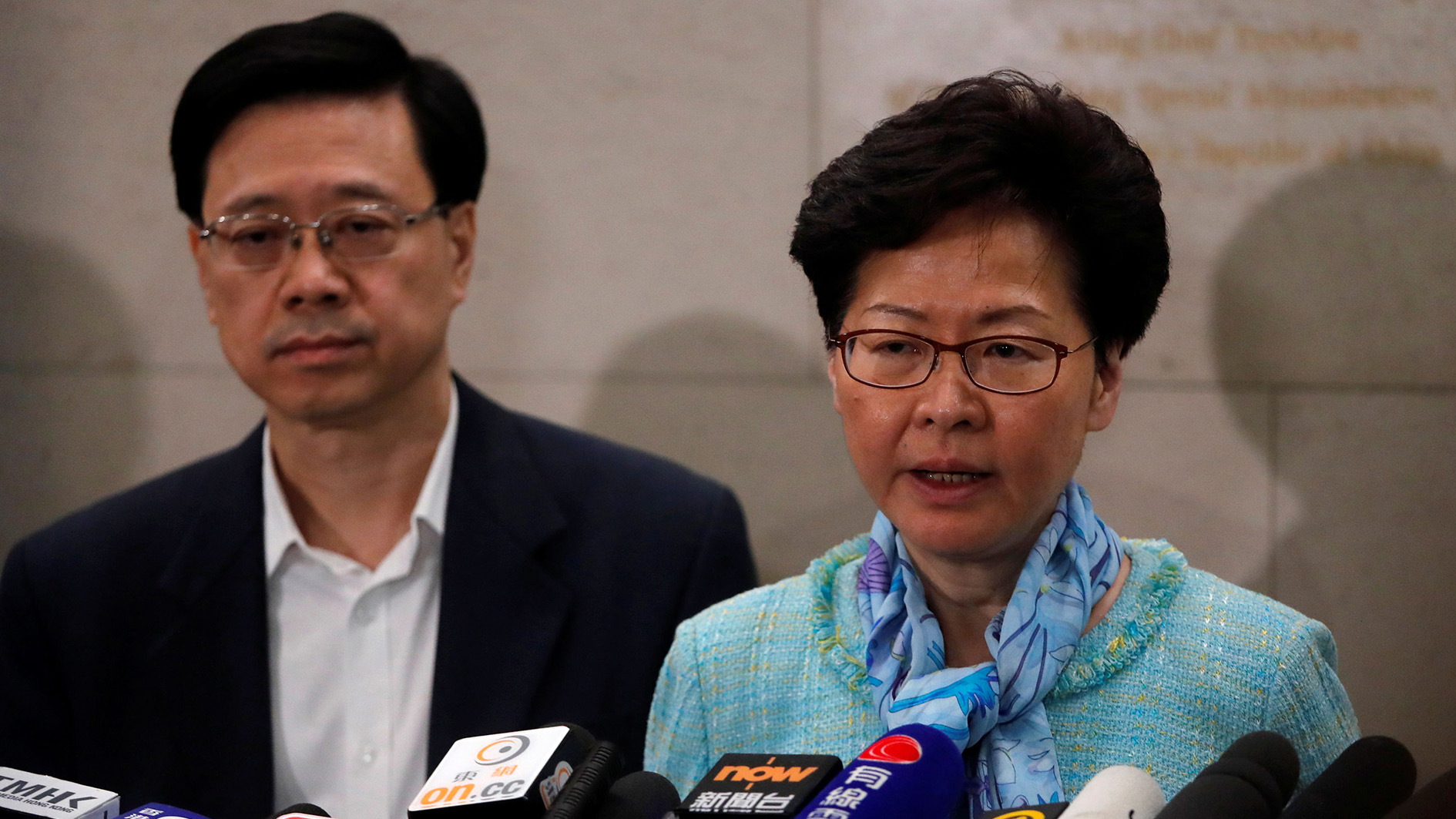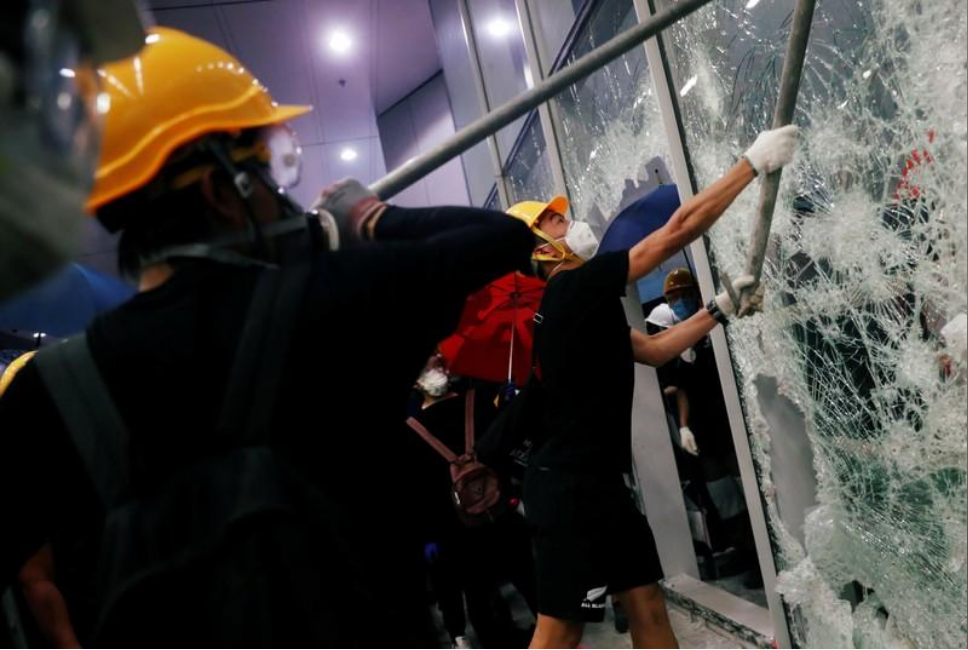

Editor's note: With a doctoral degree in communications from the Communication University of China, Dr. Summer has been working in international journalism for 30 years. The article reflects the author's opinions, and not necessarily the views of CGTN.
According to reports, some protesters marched to the Liaison Office of the Central People's Government in the Hong Kong Special Administrative Region (HKSAR) on Sunday after a public procession finished at around 4.30 p.m., and "maliciously" surrounded and tried to storm the office, some even smeared the Chinese national emblem.
The new violent act came after the European Parliament discussed the Hong Kong issue last week, which was seen as support by the radical protestors. "This has posed threats to HKSAR's public security and 'One Country, Two Systems' policy and the Hong Kong society shall not accept it," a spokesperson of the HKSAR government said in a statement.
Since June, a series of protests and violent assaults have been organized by the opposition forces in the name of blocking the legislative process of the Fugitive Offenders and Mutual Legal Assistance in Criminal Matters Legislation (Amendment) Bill 2019.
In an attempt to bring an end to disputes over the proposed fugitive extradition law amendments, Chief Executive Carrie Lam Cheng Yuet-ngor announced the suspension of the bill on June 15 and promised to open up dialogue with all sections of society in order to restore order and stability, which are vital for the city's social life and economy.

Hong Kong SAR Chief Executive Carrie Lam (R) and Secretary for Security John Lee Ka-chiu during a press conference in Hong Kong, China, July 2, 2019. /Reuters Photo
To me, if the massive protest on June 9 and the riot on June 12 could be seen as a response to the HKSAR government's efforts to push through the amendments before the Legislative Council's summer recess, now it was time for the opposition to sit down for talks with the government on issues of their concerns.
The principle of "rule of the law" is to act within the framework of the established rules. If one is not happy with the rules, he or she should initiate amendments to the rules according to the legal procedures or through discussions and consultations among government and political parties.
It's common sense that when you drive on the road, you must follow the traffic rules. So, under the current system, you cannot ignore the rules, let alone by attacking or running over the police simply because you are not used to it or you don't like it.
Unfortunately, leaders of the opposition have followed "the rule of will" principle by insisting on irrational demands, encouraged by the irresponsible and double standard remarks from some Western politicians.
If they do not get what they want, they escalate pressures on the government and society by organizing more protests and even violent attacks on the police.

Anti-fugitive bill protesters break into the Legislative Council building during the anniversary of Hong Kong's return to China, Hong Kong, China, July 1, 2019. /Reuters Photo
It was clear that these people were there not simply to "protest", but came prepared to challenge the rule of law. The rioters were looking for confrontation and wanted to attract international attention, or supports from some countries to add their pressure on the HKSAR government. Although the opposition forces are calling for democratic reforms and universal suffrage, among other things, their deeds remind me of the so-called "color revolutions" that led to political crises in some countries.
It's obvious that the opposition leaders' true intention is not to fight for Hong Kong's democracy, but rather, to restore UK's colonial control of Hong Kong.
Since few of the young students who participated in the riots know about what is in store for them if that could happen, they can at least listen to the appeals of the Hong Kong people who showed their support for the police to maintain law and order of the city. Also, it's not too difficult to find the true pictures in archives of those days when the Hong Kong residents had no say in public affairs, let alone the right to vote, be it the appointment of the Hong Kong governor or the making of laws.
Now Hong Kong is on its way of building a new international city under the "One country, Two systems" principle. A better tomorrow is only possible through joint efforts by the HKSAR government and all the Hong Kong residents, young and old. The irrational demands and violations by the small number of rioters have posed a serious threat to achieving that goal.
(If you want to contribute and have specific expertise, please contact us at opinions@cgtn.com.)

Copyright © 2018 CGTN. Beijing ICP prepared NO.16065310-3
Copyright © 2018 CGTN. Beijing ICP prepared NO.16065310-3